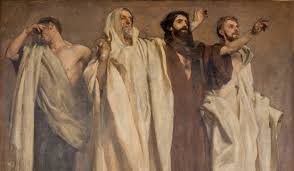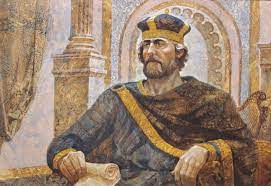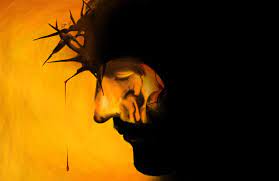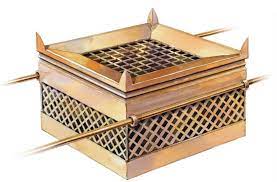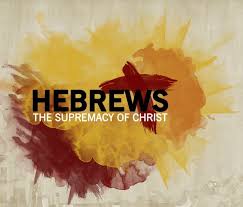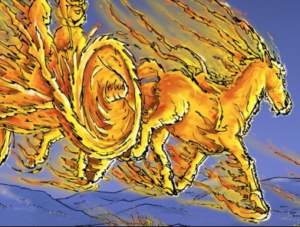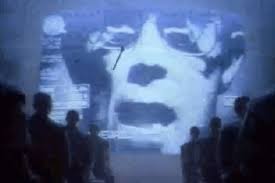Ak – The Proof of Messiah’s Superiority to Angels from the Scriptures 1:4-14
The Proof of Messiah’s Superiority
to Angels from the Scriptures
1: 4-14
The proof of Messiah’s superiority to angles from the Scriptures DIG: Who created angels? What is the significance of that? Why are the angels called fiery flames? What is the main difference between the nature of angels and Messiah? How do angels serve God’s people? If a child asked you, “How can Jesus be God and still be God’s Son?” how would you explain it? Which of the quotes from the TaNaKh, are now applied to the Son Yeshua? What does that imply?
REFLECT: What do you find out about yourself as you are conformed to the image of Jesus Christ? What does it mean to you that Yeshua’s throne will last forever? What is the ultimate destiny of Yeshua Messiah? Describe what will happen in the Kingdom (see the commentary on Revelation, to see link click Fh – The Dispensation of the Messianic Kingdom). What does that have to do with you and your salvation?

This verse completes what in the Greek text is a single sentence the runs from the beginning of verse 1. So Yeshua has become much better than the angels, and the name God has given Him is superior to theirs (1:4 CJB). This seems like an odd ending but there are two explanations. First, Jewish spirituality in that day had an excessively high view of angels. The Jews connected angels with the great events in the TaNaKh, believing that Ha’Shem gave Moshe the written Torah and the Oral Law (see the commentary on The Life of Christ, to see link click Ei – The Oral Law) through angelic mediation and that it was an angelic voice that spoke to Moses from the burning bush in Exodus 3:2. And secondly, people are just fascinated by angels. We know that we need a mediator with God. We need someone to open the doorway to heaven and to the blessing and power of YHVH. We need supernatural help for our otherwise insurmountable problems. But people in the first century, just as in our own time, found in angels an appealing and non-demanding form of spiritual hope and comfort. The fact that we don’t know much about angels makes them attractive for some people to venerate (worship) as the Catholic Church does today; the Roman Church fills in the details as they want them to be.33 The writer of Hebrews does not quarrel with the overstated Jewish view of angels, but proceeds to prove that God’s Son is much better than angels by quoting seven scriptures from the TaNaKh, which made his argument all the more powerful and irresistible.
1. For to which of the angels did God ever say, “You are My Son; today I have become Your Father” (Hebrews 1:5a CJB quoting Psalm 2:7b CJB)? The angels had only been ministers and messengers. Only Christ is the Son. The angels are created servants. Though Yeshua came to the earth as a servant – indeed the supreme suffering Servant – He also became the Son. Although His sonship was anticipated in the TaNaKh (Proverbs 30:4), He did not become a Son until He was born into time by the virgin Mary. Prior to His incarnation He was eternal God as part of the Trinity. The term Son has only to do with Christ in His incarnation. It is only an analogy to say that God is the Father and Jesus is His Son. This is the Spirit’s way of helping us to understand the essential relationship between the first and second Persons of the Trinity. Yeshua was always God, but He became a Son in a two-stage process. Just as believers become sons and daughters of God in the fullest sense by being born twice (once at our physical birth and again at our spiritual birth), so Jesus Christ also became a Son in the fullest sense by being born not once but twice. He became a Son at birth; and He was declared to be a Son at His resurrection (Romans 1:3-4; Acts 13:26-34).
This is extremely important to understand because someday a Jehovah’s Witness might come to your door and say, “Since Jesus is the son of God, he is obviously eternally inferior to God the Father. Jesus, therefore, is not God; he is less than God. He is only a son.” You need to understand that Yeshua was not a Son until His incarnation. Before that He was eternally God. He is no “eternal son” always subservient to God, always less than God, always under God. Sonship is an analogy to help us understand Christ’s essential relationship and willing submission to the Father for the sake of our redemption.34
Understanding this, then, how do you deal with Jehovah’s Witnesses? The Watchtower teaches that Jesus is the first of God’s (they say Jehovah’s) creations, the first “thing” God ever brought into existence. The Watchtower identifies Christ as the Archangel Michael, whose name appears only five times in the entire Bible. Without any Scriptural support whatsoever, the Watchtower teaches the personality of Michael the Archangel was somehow transferred to the womb of Mary, was born as a human to be the man, Jesus, and then when Messiah returned to heaven at the end of His earthly ministry, He became Michael again, but in a more exalted position. This comes from the father of lies (John 8:44) because in fact the New Covenant writers never refer to Yeshua as Michael. It is very important for believers to know that if Jehovah’s Witnesses could prove their connection that Jesus is Michael, they would prove that Christ is not God and the Trinity doctrine is false. However, just a brief examination of their proof texts (Dani’el 12:1; First Thessalonians 4:16 and Revelation 12:7-10) will reveal that the Witnesses are making huge assumptions in trying to identify Yeshua as Michael. There is absolutely no direct evidence in the Bible to prove their assumption. You should be very emphatic in bringing this to the attention of Jehovah’s Witnesses who stand at your front door. Unless you’ve had training, the easiest way to deal with them is to say, “Jesus is Jehovah to me,” then they will leave you alone.35
2. Also, God never said of any angel, “I will be His Father, and He will be my Son” (Hebrews 1:5b CJB quoting Second Samuel 7:14 CJB). This quote from Second Samuel is part of the Davidic Covenant (see the commentary on the Life of David Ct – The LORD’s Covenant with David), emphasizing Yeshua’s position as the fulfiller of that covenant. Not only was He declared the Son of God, but He continues in that position. This establishes Christ Jesus as the fulfillment of the covenant as the covenant head. The key promise of the Davidic Covenant is that the God-Man descendant of David is destined to rule over the saved and restored Isra’el from Jerusalem and from the throne of David during the millennial reign of Yeshua (see the commentary on Revelation Fi – The Government of the Messianic Kingdom). So this One, by virtue of the Davidic Covenant, is destined to rule over Isra’el. No angel will have the privilege of ruling over Isra’el in the messianic Kingdom.36
3. And when God brings His Firstborn into the world again a second time, He says, “Let all God’s angels worship Him” (Hebrews 1:6 CJB quoting Deuteronomy 32:43 CJB where Moshe speaks of the victory of God over His enemies, and avenging His people. The writer probably also had Psalm 96:7 in mind). The title Firstborn (Greek: prototokos) has nothing to do with time. It is a messianic title and refers to position (Romans 8:29 and Colossians 1:15, 18). The return of Messiah to this earth at the Second Coming will be accompanied by legions of worshiping angels (Second Thessalonians 1:7; Revelation 19:11-16). The argument of the writer is that since the Son is to be worshiped by angels, surely He must be superior to them, which in fact, makes the New Covenant He inaugurated better than the First Covenant that the angels were instrumental in bringing in.37
4. Indeed, when speaking of angels, He says, “Who created (Greek: poieo) His angels spirits and His servants fiery flames” (Hebrews 1:7 CJB quoting Psalm 104:4 CJB). This fourth quotation stresses the fact that angels are servants. Since Messiah created the angels (Colossians 1:16), He is obviously superior to them. The term winds (Greek: pneuma) emphasize the variableness of the angelic nature. They are created servants and do not operate on their own initiative, but on the direction of Ha’Shem, adapting to any special service. And being such, they are changeable, in marked contrast to the unchangeable Son, who is their Master. The word servants is the translation of the Greek word leitourgos, meaning religious devotion. They are His servants in the sense of being passionately, religiously, devoted to Him. Therefore, since Jesus Christ is their Creator and Master, He is superior to the angels. This makes the new covenant better, not like the previous covenant that ADONAI made with their ancestors when He took them by the hand to lead them out of Egypt (Jeremiah 31:32).38
5. But to the Son He says, Your throne, O God, will last forever and ever. The difference between angels and the Son is that Yeshua is the eternal God (John 5:18, 10:30; Romans 9:5; 1 Timothy 3:16; Titus 2:13). You rule Your Kingdom with a scepter of equality; You have loved righteousness and hated wickedness. As you are conformed into the image of Christ (Romans 8:29), you will also learn to love righteousness and hate wickedness. Therefore, O God, Your God has set You [Messiah] above Your companions [the angels] by anointing You with the oil [the Ruach Ha’Kodesh] of joy (Hebrews 1:8-9 quoting Psalm 45:6-7 CJB). Two things are emphasized in this passage, first, the deity of the Son, and secondly, His future Kingdom will be an eternal one and He will rule in righteousness. Isaiah speaks of His millennial reign and the fact that He will be the King anointed by the Spirit of God (see the commentary on Isaiah Dc – A Shoot Will Come Up from the Stump of Jesse). When Jesus was anointed, it proved that He was greater than the angels. In Acts 10:38, Peter tells Cornelius how God anointed Jesus of Nazareth. The Psalter anticipates the Lord’s anointing (Psalm 2:2) and David is a type of His anointing. The word in the TaNaKh for the coming Redeemer is the Anointed One, which is translated Messiah. All of this, again, points out that Yeshua Messiah is better than the angels.
6. He also says, “In the beginning, ADONAI, You laid the foundation of the earth; heaven is the work of Your hands. The unchangeable and eternal power of the Son find their basis in the fact that He created the earth and shaped the heavens. But the writer says that the [heavens] will vanish, but You will remain; like clothing, they will grow old; and You will fold them up like a coat. Yes, they will be changed like clothing, but You will remain the same, Your years will never end” (Hebrews 1:10-12 CJB quoting Psalm 102:25-27 CJB). While He is eternal, the universe will someday be discarded like an old piece of cloth. In the words of Revelation 6:14, the heaven’s receded like a scroll being rolled up, and in Second Peter 3:10, the heavens will disappear with a roar, the elements will be destroyed by fire, and the earth and everything done in it will be laid bare. The fallen angels, being part of the Son’s creation, are subject to change and decay as are the heavens. But Jesus Christ, the changeless One, is therefore superior to them.
7. Moreover, to which of the angels had God ever said, “Sit at My right hand until I make Your enemies a footstool at Your feet” (Hebrews 1:13 quoting Psalm 110:1)? Ultimately, everyone and everything in the universe will be subject to Him. At the name of Jesus every knee should bow, in heaven and on earth and under the earth (even those in hell), and every tongue confess that Yeshua Messiah is Lord, to the glory of God the Father (Philippians 2:10-11). When will this happen? When He comes in glory at His Second Coming: Coming out of His mouth is a sharp sword with which to strike down the nations. “He will rule them with an iron scepter.” He treads the winepress of the fury of the wrath of ADONAI’s angelic armies. On His robe and on His thigh He has this name written (Revelation 19:15-16). In every way Messiah is superior to angels.
The author concludes this part of the argument by describing the status of angels. Are not all the angels merely spirits who serve (ministering servants), sent out to help those who will inherit eternal life (1:14)? While He is seated, showing His work is done, angels, on the other hand, are still busy doing their work. The Ruach ha-Kodesh does not use the Greek word that normally means servant because He pictures angels here as free agents voluntarily working in the employ of another. Here, again, the author uses the Greek word leitourgos, which means religious devotion. These angels are servants to those who inherit eternal life (see the commentary on The Life of Christ Ms – The Eternal Security of the Believer). This is as close as the Bible comes in showing that believers have guardian angels.
They are assigned specifically to care for us, and this care begins at infancy, which speaks to the foreknowledge of God (Matthew 18:10), and continues throughout our lives (Psalm 91:11). The existence of guardian angels does not mean they make sure nothing bad happens to believers. They are guarding in the sense that nothing will happen to believers outside the will of ADONAI. One angelic role is to observe us; angels observe our sufferings: We have been made a spectacle to the whole universe, to angels as well as to human beings (First Corinthians 4:9), and angels even observe what we wear (First Corinthians 11:10). When believers die, our souls are escorted to heaven by angels: The time came when the beggar died and the angels carried him to Abraham’s side (Luke 16:22a).39
Hebrews 1:9 says that Messiah loves righteousness and hated wickedness. Name some actions in your life revealing that you love righteousness and hate evil. Are there actions in your life revealing that you hate righteousness because you love sin? What are they? One of the best teachings on righteousness versus wickedness is First John. Take the time to read through it in one sitting. Record every verse reference dealing with righteousness and sin, noting the attitude and actions of those who practice each. Then determine how you might apply the most significant passages to further your active love of righteousness.40




